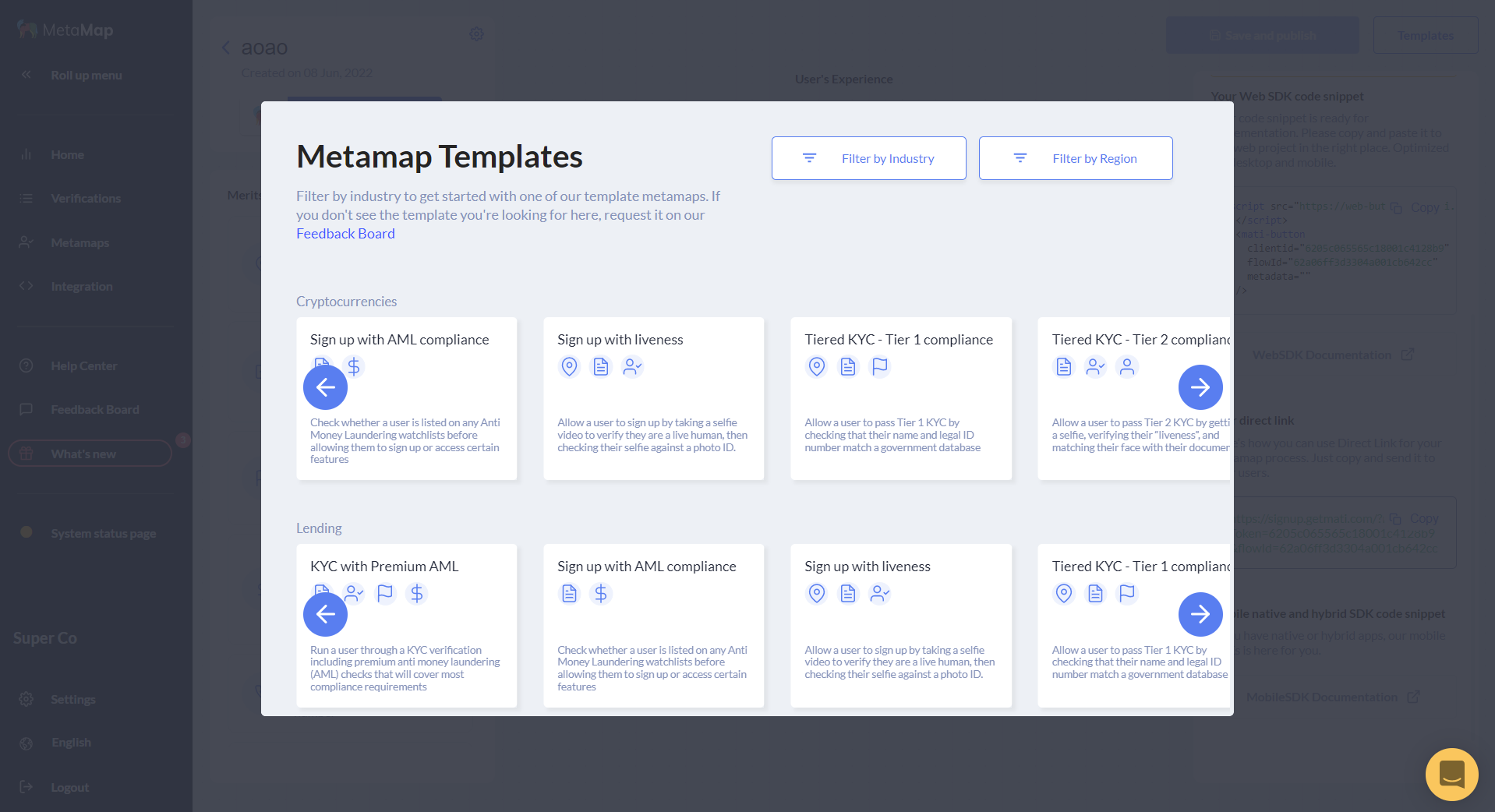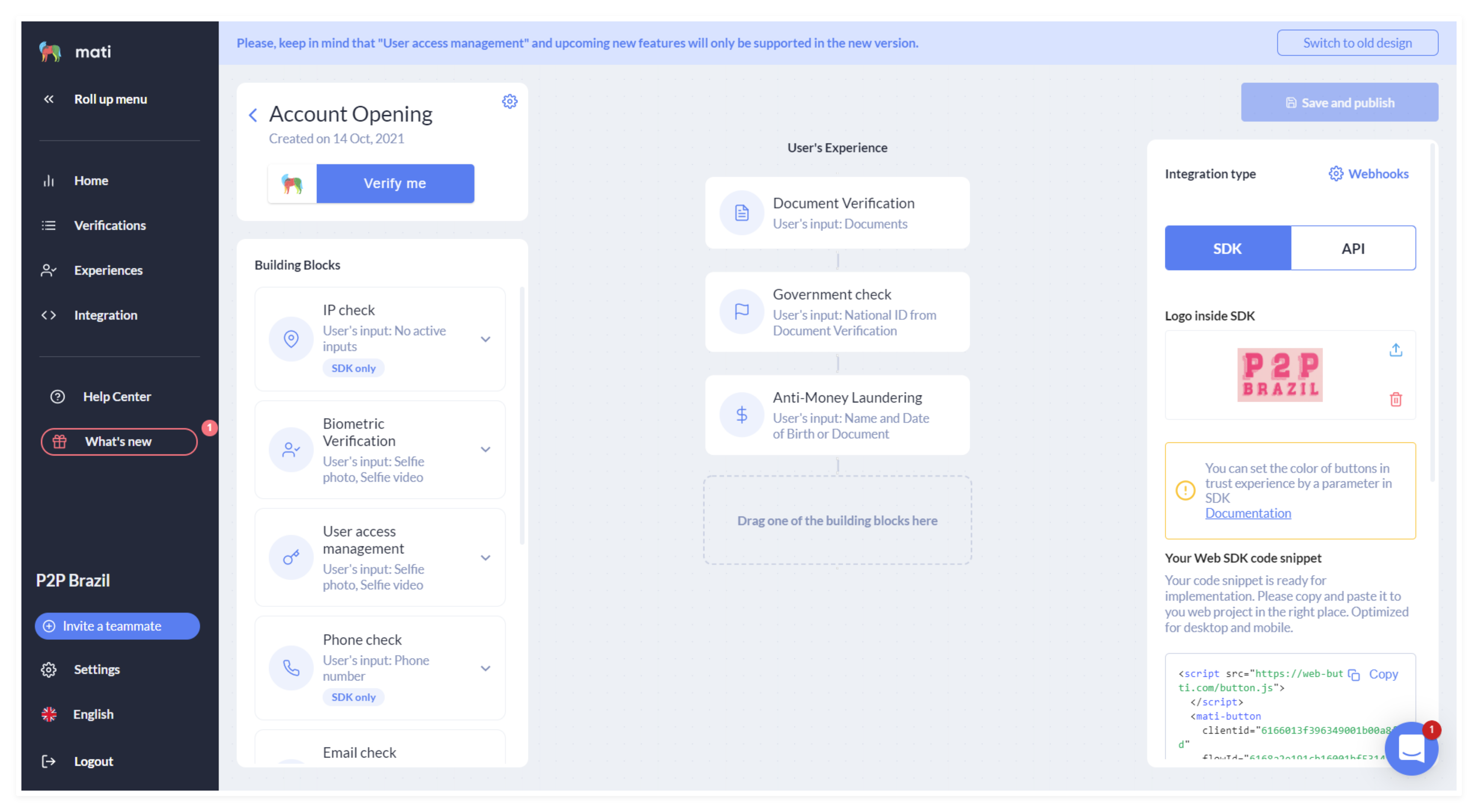Metamaps
Configure the steps your users follow to get trusted
Overview
A metamap is a flow that allows you to build the logic to evaluate a user's merits and decide whether to accept or reject a user. You can add a series of different metamaps to help you verify your user's trustworthiness or authenticate them at any point in your user's journey.
MetaMap allows you to create multiple metamaps and customize the merits that make up each metamap in the Dashboard.
What is a metamap?
Read more about metamaps here!
Create a Metamap
Start with a template
We have compiled some of the commonly used metamaps into our template library, which you can explore by Industry and Region. Here's how to use it:
- Clicking on the Metamaps tab
- Selecting either "Build new metamap" or select an existing metamap
- On the metamap builder, click on the "Templates" button on the top right
- Hover on a card and select a template to apply it to your metamap

For the majority of our products, regardless of if you use our API and SDKs, you will need to create at least one metamap in your dashboard.
Start from scratch
For each metamap, you can customize which merits to include. Within each merit you can configure inputs such as the documents required, biometric steps, country requirements or restrictions, activate additional checks and even define which data policy applies to the information created by your users.
To do this, enter the MetaMaps tab in the Dashboard. Select "Create New MetaMap" and start dragging the merits from the left panel into the User's Experience in the center of the screen. You can configure each merit you have selected in the right panel. If you are using our SDK, you can customize it in just a few clicks. Once you have finished building your metamap, select "Save and Publish".
If you need more than one type of metamap, (for example, if you are operating in different countries) you can add and configure a different type of metamap for each of your use cases.

Get your Metamap ID
You will need to get the metamap ID for the metamap you want to implement via SDKs or API. There are a few ways to get the metamap ID from the Dashboard:
- In the Integration tab, select your metamap from the dropdown and copy your metamap ID.
- In the metamaps tab, the metamap ID is the 24-character alphanumeric string inline with your metamap name.
Metamap settings
You can view your metamap's setting by opening the metamaps tab, selecting your metamap, then clicking on the gear icon next to your metamap's name in the left-hand panel with the "Verify me" button.
Within your metamap's settings, you can:
- Edit your metamap's name
- Find your metamap (flow) ID
- Toggle the GDPR setting
- Toggle the certified timestamp setting
- Set the database request timeout setting
GDPR compliance
MetaMap will store your user's data indefinitely unless you turn on General Data Protection Regulation (GDPR) and set when the data expires. To set the GDPR length:
- Toggle the "GDPR" setting to "ON"
- Select the number of days before the data expires (1-1096 days)
Certified timestamp
MetaMap can attach a certified timestamp as part of your user's verification data as legal evidence that the verification occurred. You or your auditors can then view the verification details on a recognized third party's system at any time.
Database request timeout
In the event that a data provider experiences an outage, you can set how long MetaMap should try to connect and complete the verification.
- The default time is 12 hours
- 5 minutes ≤ timeout ≤ 23 hours, 55 minutes
Updated about 2 years ago